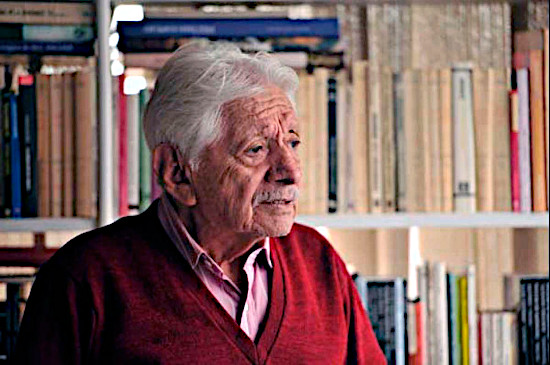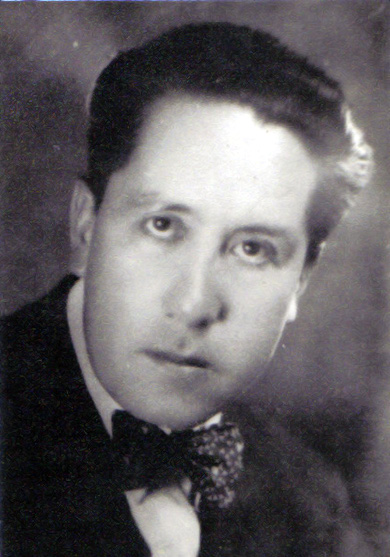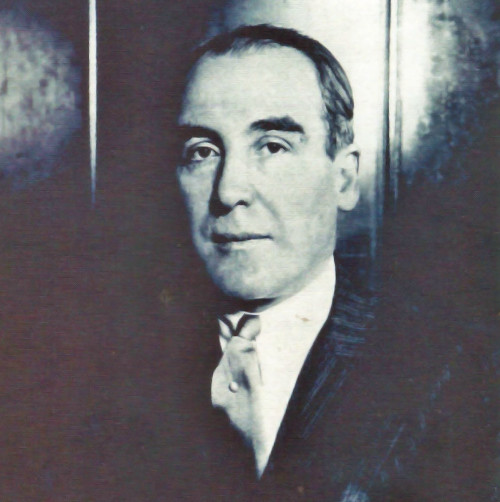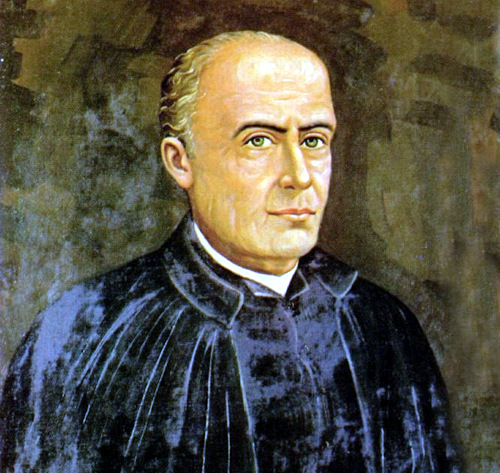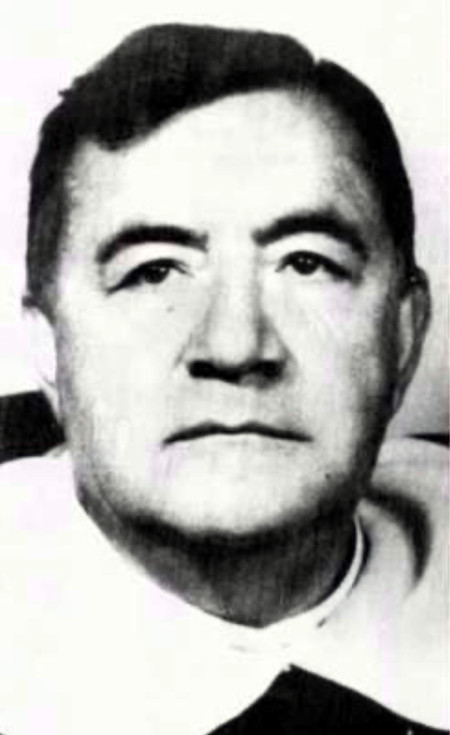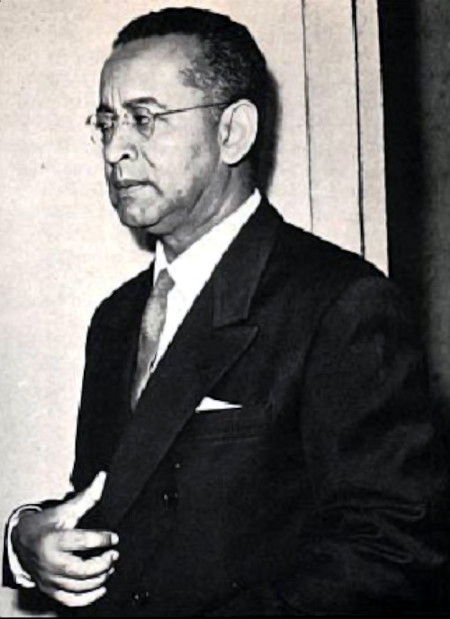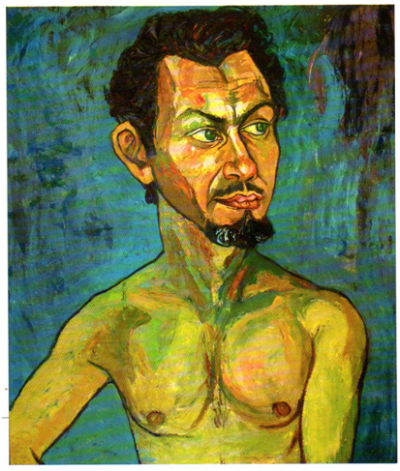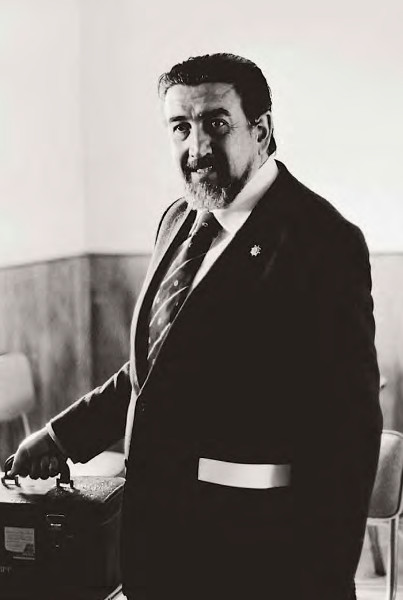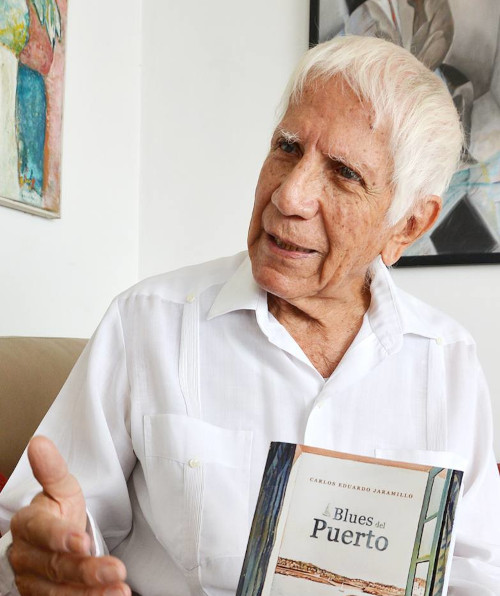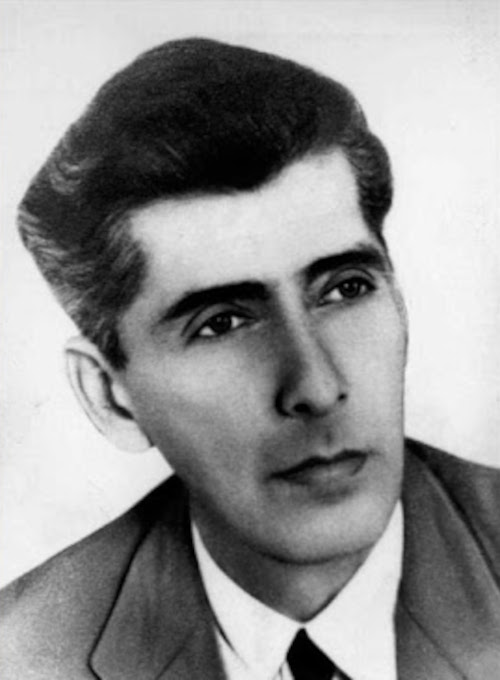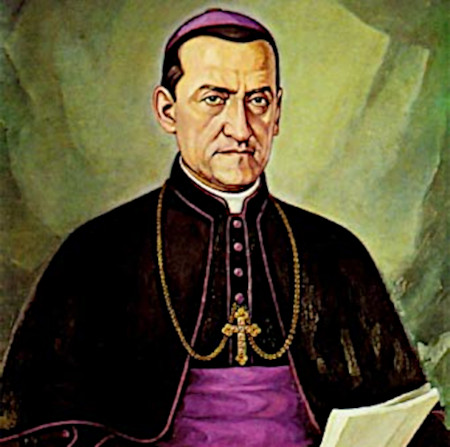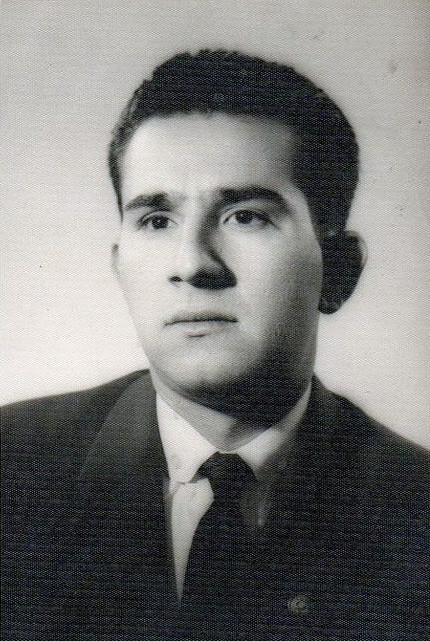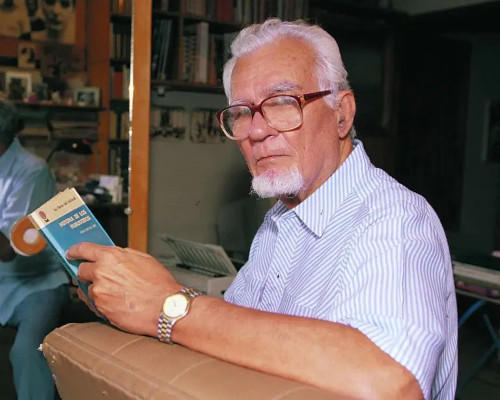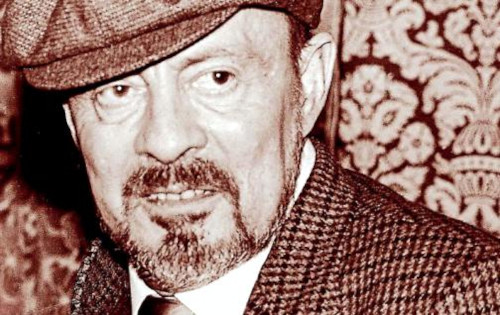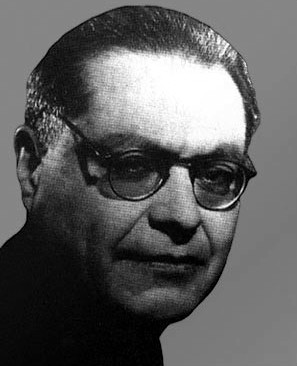Efraín Jara Idrovo (Cuenca, 26 February 1926 – Cuenca, 8 April 2018) was an Ecuadorian writer and poet. Tragedy struck Idrovo in 1974, when his teenage son committed suicide. Idrovo expressed his sorrow in the form of a poem, “Weeping for Pedro Jara (structures for An Elegy),” which was published in 1978 and is considered one of Jara’s most important works. The Biographical Dictionary of Ecuador has called it “one of the greatest and most beautiful national poems ever written.” The poem is highly experimental, in that it was printed on a single 60cm by 70cm sheet of paper, divided into 15 sections, and can be read horizontally, vertically, or diagonally. He was president of the Azuay branch of the House of Ecuadorian Culture. In 1999, Jara was awarded the Eugenio Espejo Award, the nation’s highest literary honor.
Continue reading “Efraín Jara Idrovo”Author: richard
Ricardo Paredes Romero
Ricardo Paredes Romero (March 19, 1898 – 1979) was an Ecuadorian doctor, writer, naturalist, social scientist, and politician. Romero founded the Socialist Party – Broad Front of Ecuador.
Gonzalo Zaldumbide
Gonzalo Zaldumbide (Quito, December 25, 1884 – Quito, November 30, 1965) was an Ecuadorian writer and diplomat. He was ambassador to Paris, minister of Foreign Relations (1929) and ambassador to London (1950).
Juan de Velasco
Juan de Velasco y Pérez Petroche (Riobamba, January 6, 1727 – Faenza, Italy, June 29, 1792) was an influential 18th-century Jesuit priest, historian, and professor of philosophy and theology from the Royal Audience of Quito. He dedicated his life to intellectual pursuits and made significant contributions to various fields of study. Velasco’s most notable work, “Historia del Reino de Quito,” sheds light on the existence of a pre-Inca kingdom in Ecuador, leaving a lasting impact on the country’s historical narrative. His scholarly endeavors extended beyond history, as he also wrote textbooks on physics and anthologies of poetry. Velasco’s versatile expertise and commitment to knowledge continue to be admired, making him a celebrated figure in Ecuadorian intellectual and cultural heritage.
Continue reading “Juan de Velasco”José María Vargas
Fray José María Vargas Arévalo O.P. (Chordeleg, Azuay, November 9, 1902 – Quito, March 25, 1988) was a distinguished Ecuadorian Dominican friar, historian, and author. Ordained on December 28, 1928, he made significant contributions to historical literature. His works include biographies of the 16th-century South American painter Fray Pedro Bedón and the Spanish Dominican missionary Fray Domingo de Santo Tomás. Vargas was renowned for his in-depth historical accounts of Ecuador, with notable titles like “La Cultura del Quito Colonial,” “La Evangelización en el Ecuador,” and “La Misión Científica de los Geodésicos Franceses en Quito.” His outstanding contributions to Ecuadorian culture were honored in 1984 when he was awarded the prestigious “Premio Eugenio Espejo” in the category of Culture.
Continue reading “José María Vargas”Adalberto Ortiz
Adalberto Ortiz Quiñones (Esmeraldas, February 9, 1914 – Guayaquil, February 1, 2003) was an Afro-Ecuadorian novelist, short story writer, poet, professor and diplomat. Among his most important books are: Juyungo (1942, novel; English translation by Susan Hill and Jonathan Tittler, 1983); Earth, Sound and Drum (1953, poetry); Entundada (1971, short story). His most defining feature as a writer was the incorporation of the elements of afro-Ecuadorian culture, enriching his literary vocabulary with its jargon, its elasticity and its rhythm. In 1995 Ortiz was awarded the Eugenio Espejo Prize, Ecuador’s most important literary award.
Continue reading “Adalberto Ortiz”Humberto Moré
Emilio Humberto Moré, born Lalot Rivadeneira Plata (Esmeraldas, April 14, 1929 – Havana, Cuba, 1984) was an Ecuadorian painter, sculptor, muralist, poet, writer, and art critic. He is widely regarded as one of Ecuador’s most significant painters. He developed his own style which he called “Functional Signology.” His primary contribution to literature is in the areas of art criticism and poetry. His published works include: “El chasqui dormido” (1965), “Actualidad pictórica ecuatoriana” (1970), “Evaluación de los ismos” (1968), and the poem collection “Bolívar sol de América” (1983). In 2011, Moré’s son Leonardo Rivadeneira Chaw released an artistic retrospective on his father’s work entitled “Humberto Moré y su signología.”
Continue reading “Humberto Moré”Jorge Salvador Lara
Jorge Salvador Lara (Quito, September 4, 1926 – Quito, February 8, 2012) was an Ecuadorian politician, diplomat, columnist, writer, and historian. Lara held the position of Ecuador’s Foreign Minister twice. In 1966, he was appointed Foreign Minister in the administration of interim President Clemente Yerovi. From 1976 to 1977, Lara served as Foreign Minister under Vice Admiral Alfredo Poveda’s military regime.
Continue reading “Jorge Salvador Lara”Carlos Eduardo Jaramillo
Carlos Eduardo Jaramillo Castillo (Loja, 1932) is an Ecuadorian poet, lawyer, and former minister judge of the Supreme Court of Justice. His major works include: “Escrito sobre la arena, 150 poemas” [Written on the sand, 150 poems] (1960), “La Trampa” [The Trap] (1964), “Maneras de vivir y de morir” [Ways to Live and Die] (1965), “La noche y los vencidos” [The Night and the Vanquished] (1967) and “Las desvelaciones de Jacob” [Jacob’s Revelations] (1970). He was on the General Board of the House of Ecuadorian Culture, representing Guayas. He was also the institution’s deputy director. He was awarded the Eugenio Espejo Prize in Literature in 2007 by the President of Ecuador.
Continue reading “Carlos Eduardo Jaramillo”Horacio Hidrovo Velásquez
Horacio Hidrovo Velásquez (Santa Ana, May 20, 1902 – Portoviejo, April 19, 1962) was an Ecuadorian poet, novelist, and short story writer. His most celebrated work, “Un Hombre y un Río” (1957), encapsulates his profound connection to the Ecuadorian coastal life, blending vivid narrative with social commentary. Velásquez played a significant role in the cultural sphere, serving as the President of the House of Ecuadorian Culture in Manabí in 1957, where he was instrumental in promoting the arts and literature.
Continue reading “Horacio Hidrovo Velásquez”Federico González Suárez
Federico González Suárez (Quito, April 12, 1844 – Quito, December 1, 1917) was an Ecuadorian priest, historian and politician who served as the Archbishop of Quito for twelve years. Prior to becoming the Archbishop of Quito, he served as a senator in the Ecuadorian government in 1894 and then as the Bishop of Ibarra from 1895 to 1905. He wrote several books about the history of Ecuador, among them the book Historia General de la República del Ecuador, which is considered a masterpiece for its objectivity, painstaking research and erudition. He was not shy about criticizing the Church in Ecuador for abuses during the colonial period. The publication of the fourth volume of his history in 1894 was particularly scandalous since it uncovered the sexual liaisons of seventeenth-century Dominican friars in Quito. Although this work drew criticism from his superiors, he was ultimately vindicated, with the Vatican acknowledging the veracity of his analysis.
Continue reading “Federico González Suárez”Luis Félix López
Luis Ramón Félix López (Calceta, August 25, 1932 – Guayaquil, December 17, 2008) was an Ecuadorian doctor and politician, as well as an award-winning novelist, short story writer and poet. He held many senior government posts during his lifetime and served two terms as president of the Guayas branch of the House of Ecuadorian Culture. His 1973 novel “Los designios,” was finalist for that year’s International Novel Award (Mexico), and his 1996 novel “La noche de rebaño,” won the Joaquín Gallegos Lara Prize. He also published several short story books and a collection of poetry.
Continue reading “Luis Félix López”Miguel Donoso Pareja
Miguel Donoso Pareja (Guayaquil, July 13, 1931 – Ibidem, March 16, 2015) was an acclaimed Ecuadorian writer whose literary contributions left an indelible mark on the cultural landscape of his country. Known for his experimental narrative style, introspective explorations of themes, and dedication to promoting literature, Donoso Pareja’s impact extended far beyond the pages of his books. Through his workshops and mentorship, he nurtured the talents of aspiring writers, fostering a new generation of literary voices. His works, ranging from novels and poetry to essays and short stories, challenged conventions and invited readers to engage with complex ideas. Despite facing health challenges in his later years, Donoso Pareja’s passion for literature remained unwavering until his passing. His legacy as a writer, mentor, and cultural advocate endures, continuing to inspire and enrich the literary world in Ecuador and beyond. In recognition of his contribution to Ecuadorian literature, he was bestowed the Eugenio Espejo Prize in 2006, Ecuador’s highest literary award.
Continue reading “Miguel Donoso Pareja”Agustin Cueva
Agustin Cueva Davila (Ibarra, September 23, 1937 – Quito, May 1, 1992) was an Ecuadorian writer, literary critic, and marxist sociologist. He was awarded the Eugenio Espejo Prize in Science in 1991, by the President of Ecuador. Some of his works have been translated into other languages, such as English, Japanese and Korean.
Continue reading “Agustin Cueva”Fernando Chaves
Fernando Chaves Reyes (Otavalo, February 13, 1902 – Quito, 1999) was an Ecuadorian novelist, essayist, journalist, diplomat and politician. He wrote the short novel, “La Embrujada” (1923) and the novel “Plata y bronze” (1927), which laid the groundwork for the Ecuadorian Indigenist novel. Chaves’ novel influenced other future Ecuadorian indigenista novelists, including Jorge Icaza, whose novel “Huasipungo” (1934) is considered Ecuador’s most important indigenista novel. He served as Ecuador’s ambassador to El Salvador, Mexico and Nicaragua.
Continue reading “Fernando Chaves”
